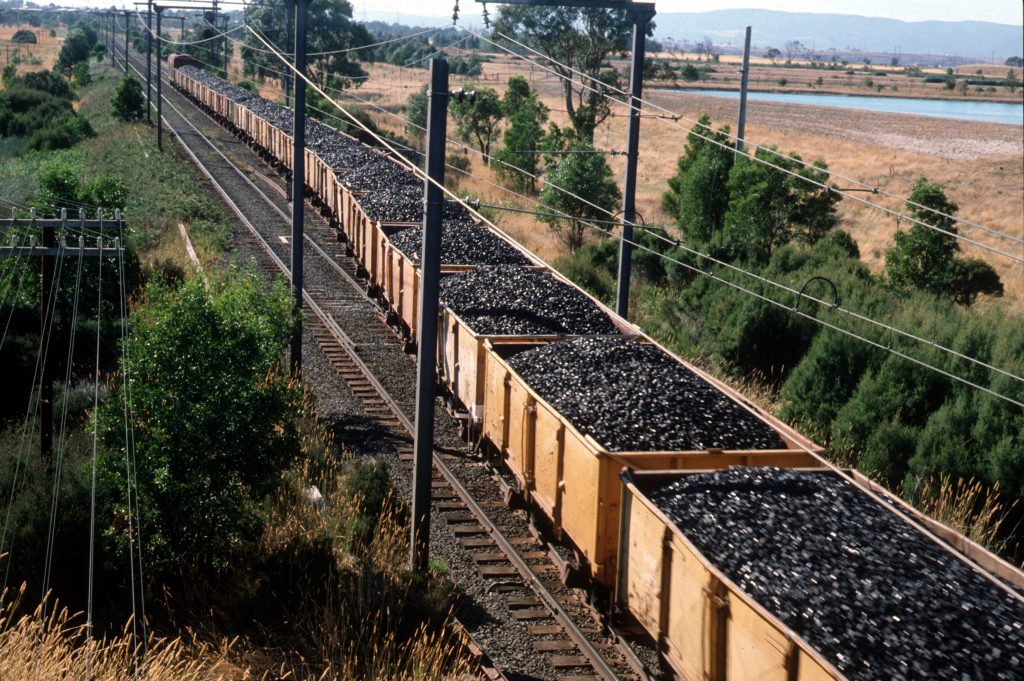October 23, 2020: Coastal power plants in the southern and western India, being away from the Coal India (CIL) pit heads, are finding imported coal, especially shipments from Indonesia, far cheaper than domestic coal as high rail freight and assorted levies inflate the prices of the local variety.
Coastal power plants in the southern and western India, being away from the Coal India (CIL) pit heads, are finding imported coal, especially shipments from Indonesia, far cheaper than domestic coal as high rail freight and assorted levies inflate the prices of the local variety. A power plant in Tamil Nadu, for instance, would pay Rs 4,350/tonne for CIL coal, but fork out just under `3,800/tonne for Indonesian coal of comparable energy content.
Alas, this is despite the CIL’s pit-head coal price for the (regulated) power sector being below Rs 1,000/tonne against the landed cost of Indonesian coal, which is hovering around $50/tonne (around Rs 3,700 at current exchange rate).
India’s coal imports surged from 208 million tonne (mt) in 2017-18 to 249.5 mt in 2018-19 causing an added pressure to the country’s current account but was brought down to 247 mt in 2019-20. Of course, coal imports registered a drop of 29.7% to 48.84 mt in the April-June of the current financial year, due to Covid-19 induced lockdown. Also, the current account is now benign, thanks to the economic slump that depressed imports, but if the current trend in coal imports is not reversed, rising import of this fuel could potentially widen the merchandise-trade and current account deficits, as economy inches back to normalcy.
Out of 126 coal-fired power plants in the country, only 14 are at a distance less than 1,400 km from the pitheads and therefore get recently announced freight discounts from the railways. The remaining 112 units are beyond 1,400 km from domestic pit heads and most of these are located in Southern and Western India.
The average on-land transportation distance for imported coal, in comparison, is just over 200 km, and in no case, it is above 260 km.
So while freight jacks up the cost of domestic coal to Indian consumers, various taxes and imposts also add to the price. Royalty levied at 14%, national mineral exploration trust at 2% of royalty and district mineral foundation fund at 30% of royalty are being charged on domestic coal. In contrast, imported coal is not subjected to any such levies, and is only liable to suffer the basic customs duty (BCD) of a benign 2.5% and social welfare charge at 10% of the duty.
Even the BCD and social welfare charges are exempt for coal from Indonesia, thanks to India’s free trade pact with the ASEAN. About 42% of India coal imports in FY20 were from Indonesia. In the case of coal extracted in West Bengal, statutory levies are even higher with royalty rates ranging between Rs 2.5-7/kg. Additionally, two more cesses are levied, one aggregating at a huge 25% of pit-head coal price and another Rs 1/kg. Statutory levies for delivering G8 grade Indonesian coal at Tamil Nadu and Gujarat is 16% of CIF (cost, insurance and freight) value, while the levies for domestic coal of equivalent grade is much higher at 46% of the pit head coal price.
For Indonesian coal with gross calorific value (GCV) of 4,200-kilo calories/kg, the levies are 20% of CIF but in case of comparable domestic coal, the levies are 55% of the pit-head price. For G14 grade of domestic coal, the levies are even higher, at 62% of the coal price.
Though GST compensation cess applies to both domestic and imported coal, the burden of the cess is heavily loaded on CIL. The compensation cess on medium-grade (GCV of 5000 kcal/kg) imported Indonesian coal is 11% of CIF, against 24% of the price of CIL coal of the same grade.
For the lower grade Indonesian coal (GCV of 4200 kcal/kg on GAR basis) GST compensation cess amounts to 15% of CIF, while it is 34% on the price of the equivalent grade of domestic coal. For G-14 grade of domestic coal, the GST compensation cess becomes even higher at 42% against 19% for imported coal.
As for the freight, 112 coal-fired power plants in the country don’t get freight discounts from the railways, as these are located beyond 1,400 km from domestic pit heads. Most of the power stations are in Southern and Western India.
Imported coal is mostly transported within 260 Kms to mainly feed the coastal power stations but CIL coal has to be hauled long distances, above 1,400 Kms -say from Talcher coalfields area to Tuticorin thermal power station in Tamil Nadu, an industry source pointed out.
The Railway Board, effective July 1 this year, granted 20% distance-based concession in rail freight for one year for coal carried to distances over 1,400 km. CIL has approached the Railways seeking freight concession in distances of 701 to 1400 km too since similar concession has been extended to iron ore which is also a bulk commodity. So if concession in freight is offered to customers falling in the range of 700 km to 1,400 km, domestic coal prices will come down 20%- 25% helping coal producers to step up domestic supplies substituting imported quantities, said Subrata Chatterjee, an analyst.
The government has mandated Coal India to replace at least 100 mt of imports with domestically produced coal in 2020-21. Also, a target has been set to save around `30,000 crore annually on import bill of thermal coal on account of the entry of private sector into commercial mining of coal.
Source: Financial Express






